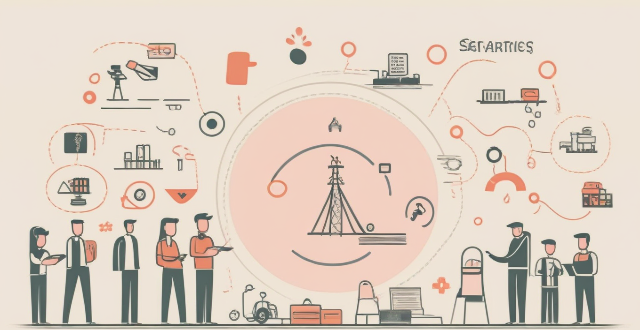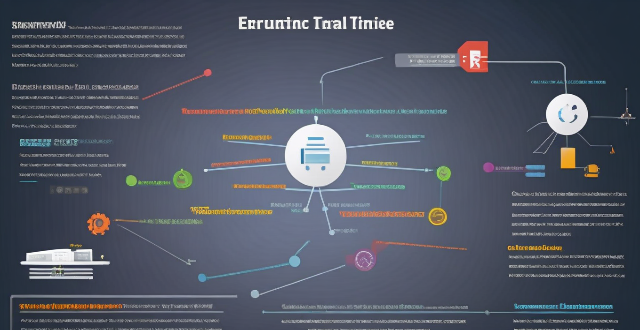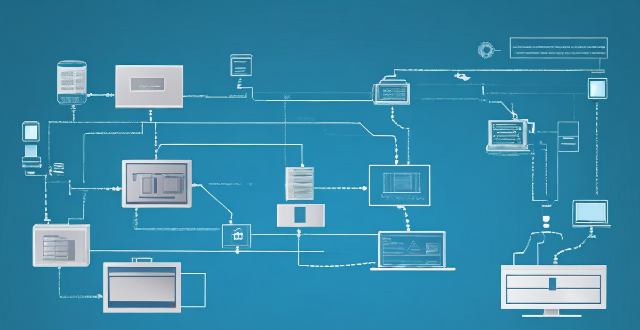Compliance Enforcement

How are international climate agreements enforced, and what are the consequences of non-compliance ?
Enforcement of international climate agreements is crucial for mitigating the effects of climate change. The enforcement relies on mechanisms such as monitoring and reporting, peer review, financial incentives, and consequences of non-compliance. Countries are required to report their greenhouse gas emissions and progress towards meeting their commitments, which are reviewed by other countries and experts. Peer review helps identify any issues or discrepancies in the reported data and promotes transparency and accountability. Financial incentives, such as access to funding for climate action projects, can encourage compliance. Non-compliance can have significant consequences, including loss of credibility, economic impacts, legal actions, loss of funding, and reputational damage. Enforcement mechanisms rely heavily on voluntary compliance and cooperation between nations.

What challenges do ecological protection areas face in terms of enforcement and compliance ?
生态保护区在执行和合规方面面临的挑战包括资源不足、法律框架不健全、社区抵抗和文化差异。解决这些问题需要增加资金投入、加强立法、促进与当地社区的互动和跨文化理解,以保护自然生态系统并确保其长期可持续性。

What challenges have been faced in the adoption and enforcement of climate change legislation ?
Climate change is a global issue that requires immediate attention and action. The adoption and enforcement of climate change legislation are crucial steps in mitigating the effects of climate change. However, several challenges have been faced in this process, including: 1. Lack of Political Will: Governments often prioritize short-term economic gains over long-term environmental sustainability, making it difficult to pass and implement effective climate policies. 2. Economic Barriers: The high cost associated with transitioning to clean energy sources can be a significant barrier to adopting and enforcing climate change legislation. Additionally, the shift towards clean energy can lead to job losses in traditional industries such as fossil fuel extraction and manufacturing. 3. Legal and Institutional Hurdles: Many countries lack comprehensive legal frameworks for addressing climate change, which can hinder the adoption and enforcement of effective climate policies. Weak enforcement mechanisms can also undermine the effectiveness of climate change legislation. 4. Public Awareness and Participation: Public awareness and understanding of climate change issues are essential for the successful adoption and enforcement of climate change legislation. However, many people still lack a basic understanding of the science behind climate change and its potential consequences. Active public participation is crucial for driving change and holding governments accountable for their actions on climate change. Addressing these challenges requires a concerted effort from governments, civil society organizations, businesses, and individuals worldwide. Only by working together can we hope to mitigate the effects of climate change and secure a sustainable future for all.

What are the penalties for non-compliance with data protection regulations ?
Non-compliance with data protection regulations can result in significant penalties, including fines, legal action, and damage to a company's reputation. The specific penalties depend on the jurisdiction and the severity of the violation. Some common consequences include: - Fines and Financial Penalties: GDPR violations can result in fines up to €20 million or 4% of global annual turnover for less severe infringements, and up to €40 million or 8% of global annual turnover for more serious violations. CCPA violations can result in fines up to $2,500 per violation for each time a Californian resident's rights are violated, and up to $7,500 per violation if the violation involves selling or sharing personal information without consent. - Legal Action: Class action lawsuits initiated by individuals or groups may claim damages for non-compliance, with potential for large settlements depending on the number of affected parties and the severity of harm caused. Government investigations may involve possible subpoenas and audits to assess compliance levels and potential violations, as well as enforcement actions such as cease and desist orders or demands to implement corrective measures. - Reputational Damage: Loss of trust from customers when data breaches occur can erode customer faith in a company's ability to protect their information, and negative publicity from data misuse can permanently harm a company's brand image. Difficulty in partnerships and deals may arise, with other companies ending collaborations due to associated risks, and potential investors being wary of putting money into a company with known compliance issues. - Market Access Restrictions: In extreme cases, a company might be prohibited from handling certain types of data, and some regions might restrict entry to companies that have a history of non-compliance. - Corrective Measures and Costs: Technical and organizational changes may be required, such as upgrading systems to ensure compliance with technical standards like encryption and security protocols, and employee training to improve understanding of data protection laws and best practices. Legal fees for representation in legal proceedings or during investigations, and settlement payments to resolve class action lawsuits or government enforcement actions, may also be necessary. It is crucial for organizations to prioritize data protection compliance as part of their business strategy to avoid these adverse effects.

How does risk management relate to compliance and regulatory requirements ?
Risk management and compliance are interconnected aspects of organizational operations, aimed at safeguarding against potential losses and legal issues. Risk management identifies and prioritizes risks impacting objectives, while compliance ensures adherence to laws and regulations. An integrated approach enhances efficiency, and collaboration between departments is key for success. Regulatory requirements significantly influence risk management and compliance strategies, with direct rules and indirect environmental changes. Understanding these dynamics is vital for maintaining reputation and avoiding compliance breaches.

What are the most effective ways to measure compliance with building energy efficiency standards ?
The topic summary for the text is "Measuring Compliance with Building Energy Efficiency Standards". The text discusses various methods used to assess a building's energy efficiency, including energy audits, building performance monitoring, third-party verification, benchmarking, energy efficiency ratings, and regulatory compliance checklists. Each method has its own advantages and can be used in combination to ensure that buildings meet minimum requirements for energy efficiency and contribute to reducing their environmental impact.

How can governments regulate the use and disposal of harmful chemicals ?
Governments can regulate the use and disposal of harmful chemicals through legislation, education and awareness programs, and enforcement and monitoring. Laws and regulations should cover all aspects of chemical management, including registration, labeling, restrictions on use, safe handling, waste management, and penalties for non-compliance. Public education campaigns and training programs can help businesses and consumers understand the risks associated with harmful chemicals and how to safely handle and dispose of them. Regular inspections and audits can ensure compliance with laws and regulations, identify potential hazards, and verify that proper safety measures are in place. Reporting and record-keeping requirements can also help government agencies monitor chemical management practices and ensure compliance with regulations.

How can we ensure compliance with environmental legislation ?
Ensuring compliance with environmental legislation is crucial for protecting the planet and its inhabitants, and can be achieved through education and training of stakeholders, developing and implementing policies, monitoring and reporting performance, and collaborating with stakeholders.

What are the legal implications of managing digital identities ?
Managing digital identities raises various legal implications including privacy laws, intellectual property rights, liability for misuse or breach, and compliance with industry standards. To ensure compliance, organizations must implement technical and organizational measures to safeguard personal information, obtain necessary permissions for proprietary information, mitigate liability risks through robust security policies, and adhere to identity management best practices.

Can environmental legislation effectively reduce pollution ?
Environmental legislation has the potential to effectively reduce pollution, but its success depends on various factors such as enforcement and compliance, public awareness and participation, technological innovation, political will, international cooperation, and economic considerations. Strong regulatory bodies, education campaigns, investment in clean technology, government prioritization of environmental protection, global collaboration, and balancing environmental goals with economic development are all crucial for the effectiveness of environmental legislation. Achieving lasting improvements in environmental quality requires ongoing effort from all sectors of society.

What are the challenges of enforcing social distancing in public spaces ?
The article discusses the challenges faced in enforcing social distancing in public spaces, including lack of awareness, crowded areas, limited resources, resistance from the public, and cultural differences. It emphasizes the importance of a multifaceted approach to create safer environments during the pandemic.

Can social distancing be implemented in schools and universities effectively ?
Social distancing is crucial to prevent the spread of infectious diseases, but implementing it in educational institutions like schools and universities can be challenging. Challenges include limited classroom space, managing student interaction outside of the classroom, and ensuring staff training and compliance. Effective strategies for implementing social distancing in these environments include classroom redesign, virtual learning options, signage and reminders, and monitoring and enforcement. By prioritizing health and safety, educational institutions can contribute to controlling the spread of infectious diseases while continuing to provide quality education.

What role do data protection officers play under data protection laws ?
Data protection officers (DPOs) are crucial for ensuring compliance with data protection laws in organizations. They advise on compliance, develop policies, ensure adherence to regulations, educate stakeholders, and act as a point of contact for personal data requests.

How does environmental legislation differ across countries ?
Environmental legislation varies across countries due to differences in economic development, political systems, cultural values, and environmental priorities. The legal framework for environmental protection ranges from comprehensive laws covering various issues to piecemeal legislation addressing specific problems. Enforcement mechanisms also differ, with some countries having strong regulatory bodies and others lacking institutional capacity or political will. Penalties and sanctions for non-compliance vary widely, as do opportunities for public participation in decision-making processes. International cooperation is crucial but varies in commitment and action among countries. Overall, these differences highlight the need for greater coordination and cooperation to address global environmental challenges effectively.

How can I ensure that my sports facility is compliant with all relevant regulations and standards ?
To ensure your sports facility's compliance with all relevant regulations and standards, you should research and understand the applicable rules, conduct a compliance audit, develop a plan to address any non-compliant areas, train your staff, and maintain compliance over time.

What is the General Data Protection Regulation (GDPR) ?
The General Data Protection Regulation (GDPR) is a comprehensive data privacy law that governs how personal information is collected, processed, and stored by organizations within the European Union (EU). It was designed to protect the rights of individuals and ensure their personal data is handled securely and transparently. Key features of GDPR include data minimization, consent, transparency, data portability, right to erasure, data protection officers (DPOs), and penalties for non-compliance. Benefits of GDPR compliance include enhanced trust between organizations and customers, risk mitigation through strong data protection measures, competitive advantage in the EU market, and increasing global relevance as other countries adopt similar laws. Challenges of GDPR compliance include complexity, cost, cultural differences leading to confusion and potential non-compliance, and technological limitations. In conclusion, the General Data Protection Regulation (GDPR) is a crucial piece of legislation that aims to protect the privacy rights of individuals within the European Union. While it presents both benefits and challenges for organizations, compliance with GDPR has become an essential aspect of modern business operations in today's digital age.

What role do safety regulations play in preventing workplace accidents ?
The role of safety regulations in preventing workplace accidents is crucial. They establish standards, provide training and education, enforce compliance, create a culture of safety, and reduce liability and costs. By adhering to these regulations, employers can protect their workforce and maintain a safe working environment.

How can small food businesses ensure they are compliant with food safety regulations ?
The text provides a comprehensive guide on how small food businesses can ensure compliance with food safety regulations. It emphasizes the importance of compliance in protecting consumer health, avoiding legal consequences, and enhancing brand reputation. The steps for ensuring compliance include understanding the regulations, training staff, implementing GMP, using quality ingredients, monitoring and testing, and having a plan for non-compliance. Following these steps can help small food businesses meet legal requirements and assure customers of the highest standards in food safety, ultimately leading to customer loyalty and a strong brand reputation.

How has technology improved food safety monitoring and compliance ?
This article discusses how technology has played a crucial role in enhancing food safety measures. It covers traceability systems, sensor technology, data analytics, automation and machine learning, and blockchain technology. Traceability systems allow for the tracking of products from farm to table using barcodes, QR codes, and RFID tags. Sensors monitor various parameters that impact food safety, such as temperature, humidity, and chemical composition. Data analytics tools process vast amounts of collected data to identify patterns, trends, and potential risks. Automated systems reduce human error and increase efficiency in food processing plants, while machine learning algorithms enhance decision-making processes based on learned behaviors from past data. Blockchain offers a decentralized way to record transactions securely and transparently when applied to food supply chains. By leveraging these technological advancements, we can work towards a future where food safety concerns are minimized, benefiting both consumers and industry stakeholders alike.

How does international environmental law address global warming ?
International environmental law plays a crucial role in addressing global warming by setting standards, encouraging cooperation, and promoting sustainable practices through treaties, agreements, and principles. The Framework Convention on Climate Change (UNFCCC), the Kyoto Protocol, and the Paris Agreement are key legal instruments that establish targets for reducing greenhouse gas emissions and provide mechanisms for compliance and financial support. Other initiatives such as Regional Seas Programmes, the Convention on Biological Diversity (CBD), and Forest Law Enforcement, Governance and Trade (FLEGT) also contribute to mitigating climate change. Challenges include enforcement, political will, and ensuring equity and justice in actions taken. As the fight against global warming continues, international environmental law must adapt to evolving scientific, political, and technological landscapes, requiring collaboration and innovation among nations.

How can policymakers encourage private sector involvement in climate adaptation ?
To encourage private sector involvement in climate adaptation, policyTo encourage private sector involvement in climate adaptation, policy as creating incentives like tax policymakers can implement strategies such as creating incentives like tax breaks and subsidies, establishing clear regulations with compliance enforcement, facilitating information sharing through open data access and collaborative platforms, promoting public-private partnerships with joint projects and long-term commitments, enhancing capacity building via training programs and technical assistance, and recognizing and showcasing success stories through awards and media coverage. These steps will foster a collaborative environment where the private sector actively seeks opportunities to contribute to resilient and sustainable solutions for climate change challenges.

How are food safety regulations enforced by governments ?
Governments around the world enforce food safety regulations through various methods, including legislation and policy development, inspection and compliance checks, licensing and certification, education and training, penalties and enforcement actions, public communication, and international cooperation. These efforts aim to protect consumers from harmful substances and contaminants in food products while promoting fair trade practices among producers and retailers.

How does GDPR affect international businesses ?
The General Data Protection Regulation (GDPR) has significant implications for international businesses, affecting everything from data collection and processing to customer communication. Key aspects include its territorial scope, consent requirements, appointment of Data Protection Officers (DPOs), Data Subject Access Rights (DSAR), cross-border data transfers, and potential fines and penalties for non-compliance. Companies must take proactive steps to ensure compliance with GDPR to avoid costly fines and penalties while building trust with customers and partners.

What are the challenges in enforcing international environmental laws related to climate change ?
Enforcing international environmental laws related to climate change faces challenges such as a lack of global leadership and coordination, inadequate legal frameworks, economic and developmental imbalances, scientific uncertainty and information gaps, socio-cultural factors, and technological and infrastructure limitations. These issues require cooperation among nations, stronger legal frameworks, balanced economic development, improved scientific understanding, cultural sensitivity, and technological advancement to overcome.

Why is climate risk management important for businesses and organizations ?
Climate risk management is crucial for businesses and organizations due to its impact on operations, financial implications, reputational considerations, legal and compliance obligations, and ethical responsibilities. Supply chain disruptions, physical asset damage, regulatory changes, insurance costs, investor pressure, capital at risk, public perception, stakeholder engagement, leadership opportunities, compliance with laws, contractual obligations, sustainability goals, and intergenerational equity are all affected by climate change. Proactive climate risk management can protect assets, maintain investor confidence, uphold reputation, meet compliance requirements, and fulfill ethical responsibilities to current and future generations.

What measures should be taken to ensure compliance with biosafety policies in laboratories and research facilities ?
Ensuring biosafety compliance in laboratories and research facilities is crucial for the protection of personnel, the environment, and research subjects. Measures such as regular training sessions, competency assessments, clear policies and procedures, proper use of personal protective equipment (PPE), effective waste management, and well-developed emergency response plans should be implemented to create a safe working environment.

What is the role of firewalls in network security protection ?
Firewalls are crucial for network security protection, acting as a barrier between trusted and untrusted networks to prevent unauthorized access and block malicious traffic. They monitor network activity for potential threats, with various types including packet-filtering, stateful inspection, application-level, and next-generation firewalls. Firewalls offer benefits such as access control, threat prevention, visibility and auditing, and compliance enforcement. Best practices for deploying firewalls include implementing a multi-layered defense strategy, regularly updating firewall rules and policies, monitoring logs and alerts, conducting regular penetration testing, and training staff on firewall management and maintenance.

How can regulators encourage adoption of TCFD among companies ?
The Task Force on Climate-related Financial Disclosures (TCFD) was established by the Financial Stability Board (FSB) in 2015 to develop voluntary, consistent global climate-related financial risk disclosures for use by companies. Regulators can encourage adoption of TCFD among companies through various means, including mandatory reporting with clear enforcement mechanisms and penalties, incentives such as tax breaks and funding, education and awareness campaigns, and collaboration with investors, NGOs, and other stakeholders.

Can climate variability be mitigated through international agreements and policies ?
The text discusses the potential of international agreements and policies to mitigate climate variability, highlighting their roles in setting goals, promoting cooperation, creating legal obligations, and raising awareness. It also explores the impact of various policies on emission reduction, adaptation, research and development, and education. However, it acknowledges challenges such as political will, economic considerations, equity and justice, and compliance and enforcement. The text concludes that while these measures are crucial, they must be part of a comprehensive strategy that includes local efforts, technological advancements, and individual actions.

What role does government regulation play in ensuring safe levels of radiation exposure for the public ?
Government regulation is essential for ensuring safe radiation exposure levels by setting standards, licensing facilities, conducting inspections, educating the public, investing in research, preparing for emergencies, and collaborating internationally to manage radiation risks effectively.